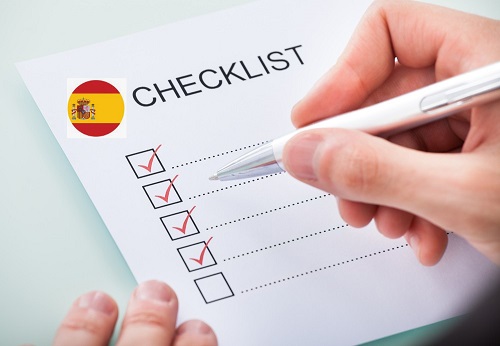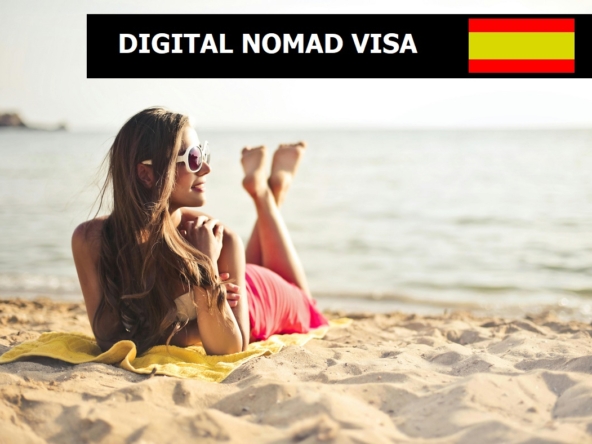I will describe here my experience as a Canadian getting the Spanish Digital Nomad Visa to Spain. I started really travelling after I graduated university and planted trees in BC, Alberta and Quebec.
However, I wanted to travel outside of Canada and ended up living for several years in Ecuador and Argentina. I visited Spain for the first time in 2017 and loved it. I could see the connection to Latin-America and appreciated the food, weather and the safety the most. I made the move to Spain in 2019 through the North American Language and Culture Assistants Program (Auxiliares de Conversación). I spent 4 years as an auxiliar in 4 cities Vitoria, San Sebastian, Carboneras and Cordoba. In this government run program native English speakers are put into public schools (primary, secondary and official language schools) throughout Spain.
In the middle of my fourth year I decided I wanted to stay in Spain instead of returning to the frozen tundra, luckily the digital nomad visa came out during this year as well. There are other visas you can apply for as a freelancer or as an entrepreneur but the DNV is the best one for freelancers working online. During my time as an auxiliar I was also teaching English online for a German company as a freelancer. This was my key to getting the visa. The fact that I only had one “client” made the process easier as you need to get a letter from each client authorising you to work from Spain. You also must have worked with that client for at least one year.
My Spanish level is decent so I felt confident enough to complete the application myself. There are some useful Facebook groups that can help you and I strongly recommend them, you can find great advice and answers to your questions there.
Before applying for this Visa
You have to be a non-EU citizen working remotely from Spain for a company located outside of Spain. You also have to earn at least double the Spanish minimum wage which is 1050 euros per month.
You will need to apply for a NIE (número de identidad de extranjero) and an electronic certificate or Cl@ve to allow you to access the application.
The website to apply is here: https://www.inclusion.gob.es/web/unidadgrandesempresas/solicitudes
Options when applying for this visa
There are two different options depending on what type of professional you are…
- an employee that work for a company outside of Spain
- a self-employed person that works for different companies around the world. In this case you could work for a company located in Spain as long as it does not exceed 20% of your total income.
There are also two options depending on where you are when applying for this visa…
- From Spain: you get a 3-year residence permit (renewable), these years count for both Spanish nationality and permanent residence, which you can get after 5 years in Spain.
- From Cánada (or your country of origin): and get a 1-year residence permit.
Advantages offered by the digital nomad visa
Some of the advantages that you will get as a Canadian when applying for this visa are the next…
- resolution in just 20 days, and the applicable administrative silence is positive
- tax advantages: if you are not a freelancer but just work remotely for a company you will pay a flat tax rate of just 24% on your income and also you don’t need to pay wealth tax
you could include your spouse and children in the visa application - Get the permanent residency after 5 years
- Travel in all the Schengen area is allowed
The documents required to apply for the Digital Nomad Visa
– Visa application form: can be downloaded here
– Photography. a passport-size colour photograph and recent (less than 2 months)
– Valid passport: original and a photocopy and valid for at least 1 year
– Criminal record certificate: no older than 6 months
– Proof of residence in the consular district.
– Visa fee: the amount to pay is €80
– Private health insurance, with coverage throughout Spain (original and a copy of the certificate)
– If you are a freelancer, a certificate of working for at least 3 months (before the visa application) for a foreign Company.
– If you are self employed, a contract with that same company for at least 1 year
– Copy of the University degree or professional certificate confirming that you have a minimum of 3 years of experience in your career.
Documents to translate
The process itself is not that time consuming, it’s just getting the documents together and translated that takes the most amount of time.
Some docs must be translated by a certified translator they are:
1) Your work contract
2) Proof that the foreign company you work for has existed for at least one year
3) Your degree/diploma/certificate related to the work you do
A simple translation of other documents are required, so you can translate these documents yourself:
1) CV
2) Letter from your company authorizing you to work abroad
Timeline
The whole process took me about 5 months. I didn’t apply for the visa until I finished the school year, where I then had 90 days to submit the application. I submitted in June and was approved about 30 business days later.
They told me to expect a response within 20 days, after 20 days I submitted a request for a favourable resolution based on administrative silence (you can do this on the same webpage as the initial application) and I was approved about 10 days after that.




